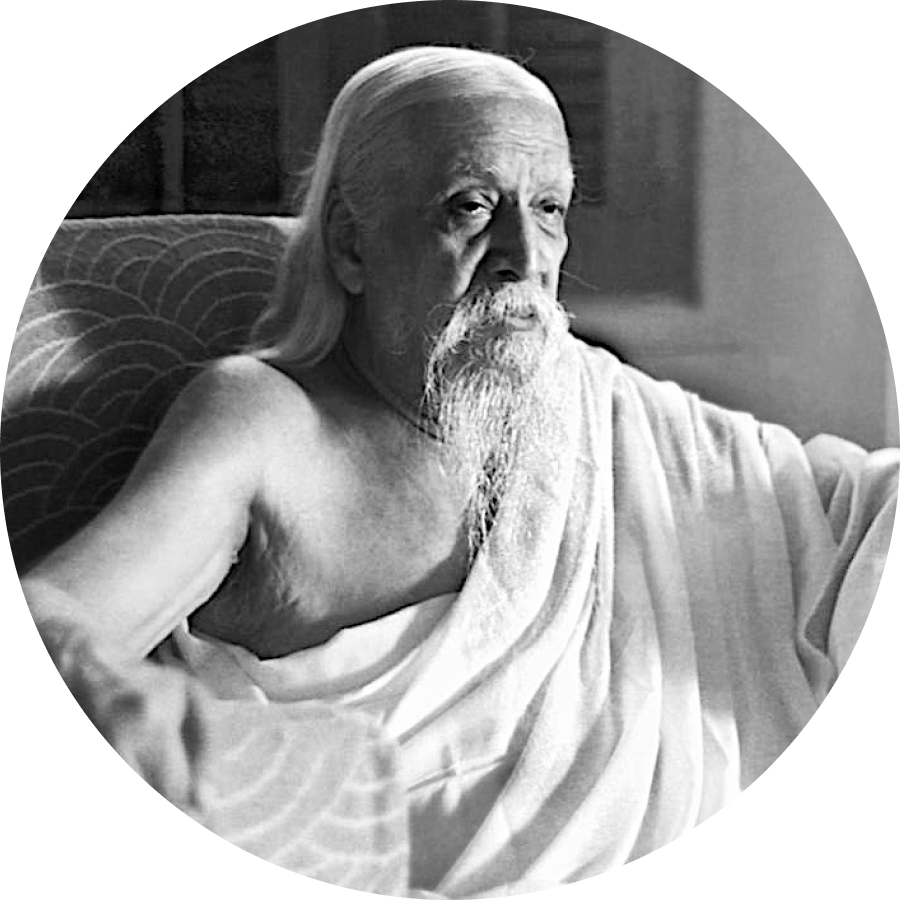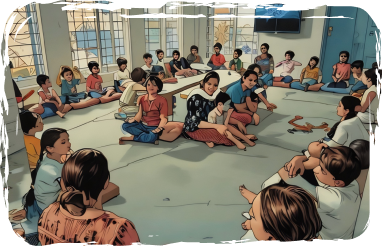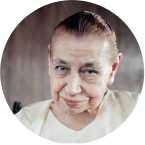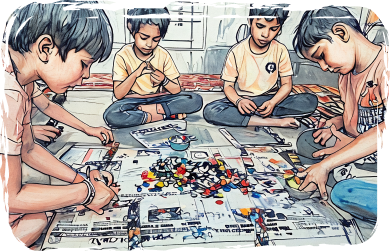“The first principle of true teaching is that ‘nothing can be taught’. The teacher is not an instructor or taskmaster, he is a helper and a guide. His business is to suggest and not to impose. He does not actually train the pupil’s mind, he only shows him how to perfect his instruments of knowledge and helps and encourages him in the process. He does not impart knowledge to him, he shows him how to acquire knowledge for himself. He does not call forth the knowledge that is within; he only shows him where it lies and how it can be habituated to rise to the surface. The distinction that reserves this principle for the teaching of adolescent and adult minds and denies its application to the child, is a conservative and unintelligent doctrine”

In practical terms, this means that the teacher, above all, must create learning situations and environments that elicit inner knowledge. They should offer a wealth of stimulating learning materials without providing explicit instructions on how to use them. Instead, the teacher collaboratively builds understanding with the child. There is nothing to ‘stuff in,’ but rather, everything to ‘draw out’ from what is already within.
“The second principle is that ‘the mind has to be consulted in its growth’. The idea of hammering the child into the shape desired by the parent or teacher is a barbarous and ignorant superstition. To force nature to abandon its dharma is to do it permanent harm, mutilate its growth and deface its perfection. It is a selfish tyranny over a human soul and a wound to the nation, which loses the benefit of the best that a man could have given it.”

Each child is unique and has a particular temperament and the teacher must identify that and offer those learning opportunities in which the child can blossom as per his or her svabhava.

“The third principle of education is to ‘work from the near to far’, from that which is to that which shall be. The basis of a man’s nature is almost always, in addition to his soul’s past, his heredity, his surroundings, his nationality, his country, the soil from which he draws his sustenance, the air which he breathes, the sights, sounds, habits to which he is accustomed. They mold him not the less powerfully because insensibly, and from that then we must begin…. If anything has to be brought in from outside, it must be offered, not forced on the mind.”

The integral facilitator guides the child from that which is ‘real’ to her and that which is available in her immediate environment to abstraction. From teaching a general textbook to widening the mind starting from the child’s experiences, from being a teacher ‘I know more and better because I am a teacher” to respecting and understanding a child’s natural way of progress and education.
“A progress guided by the soul and not subjected to habits, conventions or preconceived ideas.”

A ‘free’ progress education is an education that is free of conventions, rules, imposed ideas and theories about life and different subjects. ‘Free’ here essentially refers to the soul or the psychic being, the in most or the innermost part of our being that is not subjected to second hand information or beliefs. The whole idea is for the child to grow in his or her freedom, away from culture, society, parents influence, habits, language, immediate environment amongst other influences.

Integral education works on a curriculum that attempts to evolve a worldview based on the essential interconnectedness of life and the universe. Globally, modern science and traditional philosophy are both converging to the same understanding. To be honest, such a curriculum will not come from experts or so-called technologists or big universities or some abstract learning theory or model, the focus here is to get the curriculum out of every child’s heart, his or her deep hidden interest and curiosity. This is what makes Integral education radically and profoundly different from any other learning model or theory.